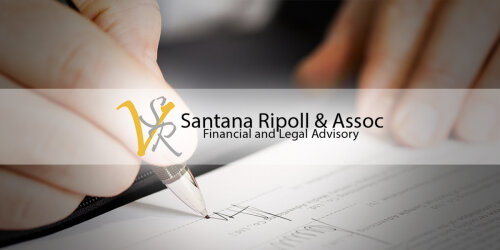Best Nonprofit & Charitable Organizations Lawyers in Puerto Plata
Share your needs with us, get contacted by law firms.
Free. Takes 2 min.
List of the best lawyers in Puerto Plata, Dominican Republic
About Nonprofit & Charitable Organizations Law in Puerto Plata, Dominican Republic
Nonprofit and charitable organizations play a crucial role in the social and economic development of Puerto Plata, a prominent coastal region in the Dominican Republic. These organizations typically work towards solving community issues, promoting education, healthcare, or cultural activities, and providing humanitarian aid. The legal framework governing these entities is designed to ensure their activities benefit the public and that they operate transparently and efficiently. Nonprofits in Puerto Plata must adhere to specific local laws and regulations that dictate how they are established, managed, and dissolved.
Why You May Need a Lawyer
While establishing or managing a nonprofit or charitable organization is a rewarding endeavor, it involves complex legal requirements. You may need a lawyer for various reasons, such as:
- Understanding the legal requirements for establishing a nonprofit organization, including registration, compliance, and tax obligations.
- Drafting or reviewing articles of incorporation, bylaws, and other governing documents.
- Navigating issues related to governance, including the role of board members and compliance with both local and international laws.
- Handling disputes or legal challenges that may arise during operations.
- Advising on charitable solicitation and fundraising regulations.
- Assisting with mergers or partnerships with other organizations or entities.
- Ensuring proper dissolution procedures if a nonprofit intends to cease operations.
Local Laws Overview
In Puerto Plata, as in the rest of the Dominican Republic, nonprofits must comply with national laws, notably:
- Formation and Registration: Nonprofit organizations should be registered with the relevant governmental authority, such as the Procuraduría General de la República.
- Taxation: Certain nonprofit organizations may be eligible for tax exemptions, but they must comply with specific criteria and registration procedures to qualify.
- Financial Reporting: NGOs are required to maintain accurate financial records and may need to provide periodic reports detailing their financial activities.
- Governance: Clear regulations govern the composition and responsibilities of boards of directors within nonprofit organizations.
Frequently Asked Questions
1. How do I register a nonprofit organization in Puerto Plata?
Registration requires submitting the organization's articles of incorporation, board member information, and bylaws to the Procuraduría General de la República, along with any required registration fees.
2. Are there tax benefits for nonprofit organizations in the Dominican Republic?
Yes, certain nonprofits may qualify for tax exemptions if they adhere to regulations set by the government regarding their operations and finances.
3. What are the basic governance requirements for a nonprofit?
Nonprofits must have a board of directors and adhere to established bylaws that dictate the organization's operational and oversight structures.
4. Can I engage in fundraising activities without registering as a nonprofit?
No, you must be a registered nonprofit to engage in official fundraising activities to ensure transparency and legal compliance.
5. Do nonprofits need to report their financial activities?
Yes, nonprofits are typically required to maintain financial transparency and submit periodic reports to regulatory bodies as specified by law.
6. What legal protections do board members have?
Board members are generally protected from personal liability for the nonprofit's obligations, provided they act in good faith and adhere to their fiduciary duties.
7. Can a nonprofit operate a business to fund its activities?
Yes, a nonprofit can operate a business provided the profits are used to further its charitable mission, and it complies with relevant regulations.
8. How can a foreign nonprofit operate in Puerto Plata?
Foreign nonprofits can operate in Puerto Plata by registering as a foreign entity and adhering to local laws governing nonprofit activities.
9. Are donations to nonprofits tax-deductible for the donor?
This typically depends on the donor's tax situation, and they should consult with a tax advisor to understand how donations may be treated.
10. What are the steps for dissolving a nonprofit organization?
Dissolution involves notifying authorities, settling debts, and distributing any remaining assets according to the organization’s bylaws or regulatory requirements.
Additional Resources
If you need more information, consider reaching out to the following resources:
- Procuraduría General de la República: The main governmental body for the oversight of nonprofit registration and operation.
- Centro de Apoyo y Promoción Asociativa (CAPA): An organization offering guidance and support to nonprofits in the region.
- Local Law Firms Specializing in Nonprofits: Law firms that specialize in nonprofit law can provide valuable assistance and advice.
Next Steps
If you believe you need legal assistance for issues related to nonprofit or charitable organizations in Puerto Plata, consider the following steps:
- Consult with a lawyer experienced in nonprofit law to discuss your specific needs and challenges.
- Gather all necessary documentation, such as articles of incorporation, bylaws, and financial records.
- Identify whether your issue requires immediate legal attention, such as compliance violations or financial disputes.
- Reach out to relevant governmental bodies or organizations for guidance on regulatory or compliance issues.
Engaging with legal professionals can help ensure your nonprofit operates within legal requirements and continues to serve the community effectively.
Lawzana helps you find the best lawyers and law firms in Puerto Plata through a curated and pre-screened list of qualified legal professionals. Our platform offers rankings and detailed profiles of attorneys and law firms, allowing you to compare based on practice areas, including Nonprofit & Charitable Organizations, experience, and client feedback.
Each profile includes a description of the firm's areas of practice, client reviews, team members and partners, year of establishment, spoken languages, office locations, contact information, social media presence, and any published articles or resources. Most firms on our platform speak English and are experienced in both local and international legal matters.
Get a quote from top-rated law firms in Puerto Plata, Dominican Republic — quickly, securely, and without unnecessary hassle.
Disclaimer:
The information provided on this page is for general informational purposes only and does not constitute legal advice. While we strive to ensure the accuracy and relevance of the content, legal information may change over time, and interpretations of the law can vary. You should always consult with a qualified legal professional for advice specific to your situation.
We disclaim all liability for actions taken or not taken based on the content of this page. If you believe any information is incorrect or outdated, please contact us, and we will review and update it where appropriate.











